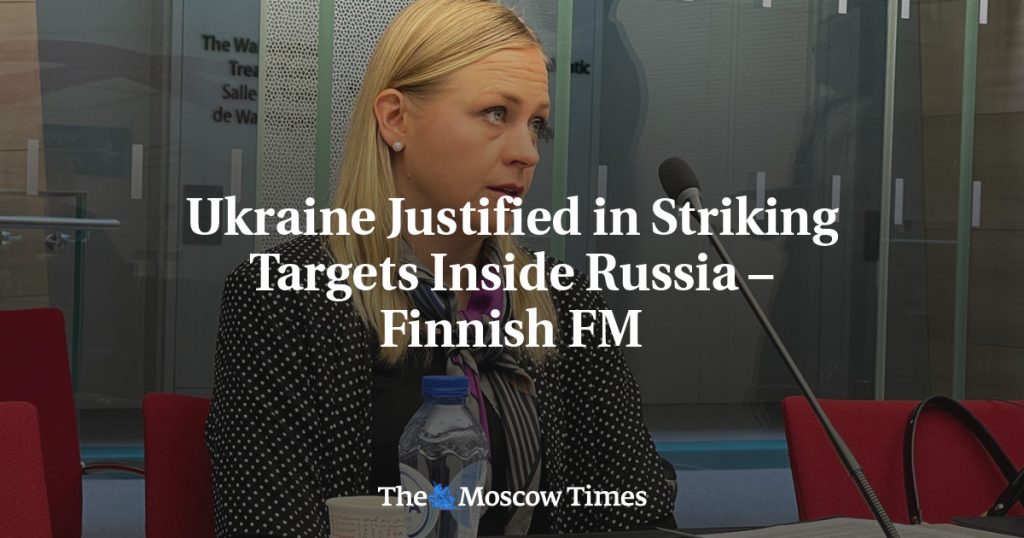Finland’s Foreign Minister Elina Valtonen considers Ukrainian strikes on oil refineries and military targets inside Russia as legally justified under the UN Charter’s provision that allows countries to defend their independence by attacking military targets. These strikes, part of Ukraine’s strategy to sabotage Russia’s war machine, have been met with mixed reactions from NATO members, with some cautioning against further escalation and others supporting Ukraine’s right to defend itself. The United States has stated that it has not supported or enabled these strikes, while French Foreign Minister Stephane Sejournet believes Kyiv is acting within the framework of legitimate defense.
Finland’s decision to join NATO last year in response to Moscow’s invasion of Ukraine dramatically reshaped Europe’s security landscape, extending NATO’s border with Russia by nearly 1,300 kilometers. While the Kremlin initially downplayed the threat posed by Finland’s NATO membership, President Vladimir Putin has since hinted at a potential military build-up along the Finnish border. Finland has seen an increase in asylum seekers from the Russian border, leading to a closure of land borders, as Helsinki accuses Moscow of using refugees as a destabilization tactic. Despite concerns, Valtonen emphasized that Finland does not feel an immediate military threat from Russia.
With Finland now a NATO member, the country’s primary mission is to secure the alliance’s border with Russia and support Ukraine with arms in its defense against Russian forces. While French President Emmanuel Macron has hinted at the possibility of sending troops to Ukraine, Valtonen stated that it was unlikely for Finnish troops to be deployed to Ukraine in the near future. The focus for Finland remains on strategic preparedness in the face of potential threats from Russian military posturing. Valtonen stressed the importance of being ready for any situation that may arise in the long-term.
Despite Putin’s warnings of potential problems with Finland after its NATO membership, Valtonen noted that Russia’s promised military build-up along the Finnish border has not yet materialized. While there have been reports of Russian troops near the border and plans for new military districts, no significant changes have been observed. Valtonen highlighted the strategic threats posed by Russia’s actions, pointing to a combination of verbal threats and actions that indicate a willingness to carry out imperialist ambitions. Finland remains vigilant in monitoring any developments and preparing for potential threats that may emerge in the future.
As a member of NATO, Finland continues to navigate its role in supporting the alliance’s security objectives while also addressing regional tensions with Russia. Valtonen emphasized the importance of maintaining an open and independent media landscape, noting the challenges faced by The Moscow Times as it has been labeled a “foreign agent” by the Russian government. Despite these challenges, Valtonen reiterated Finland’s commitment to providing accurate and unbiased reporting on Russia and supporting open journalism. The ongoing support of readers and the broader community is crucial in upholding the values of independent journalism and ensuring the integrity of reporting on critical issues.















